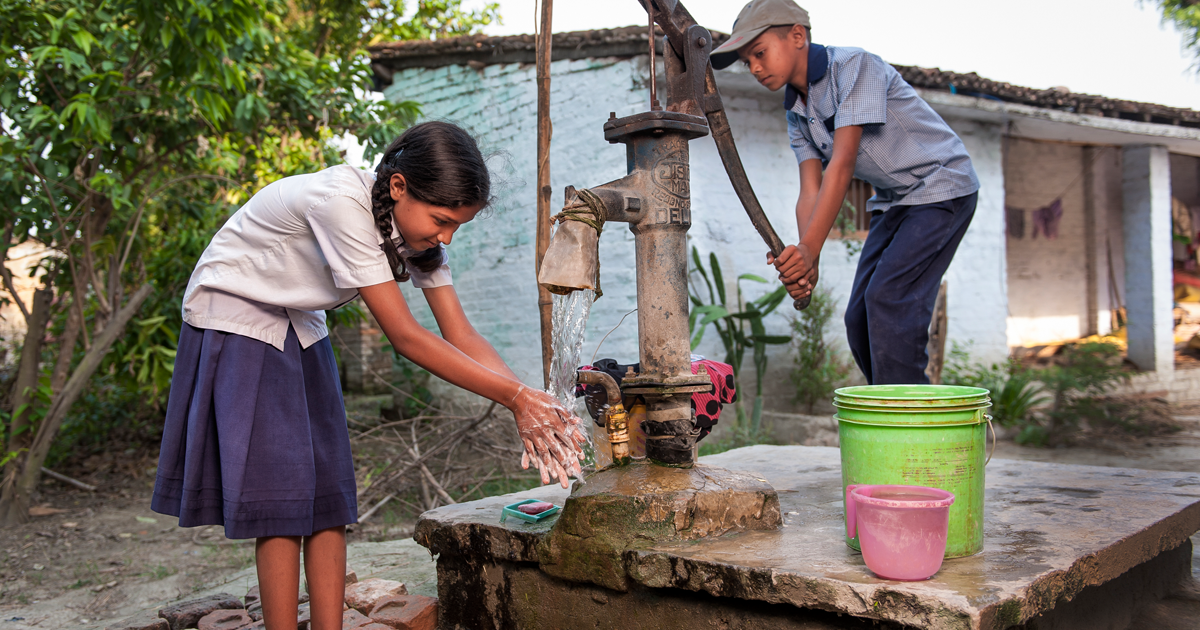To learn more about Digital Green’s AI-powered platform and how it impacts small-scale farmers in India, Ethiopia, Kenya, Nigeria and Nepal, we encourage you to sign up for our newsletter.
Videos Boost the Efforts of Chhattisgarh’s Frontline Health Workers

“I am motivated by the thought that my work can bring a positive change in the lives of my  community,” shares Anju Sahu, 38, a Mitanin trainer in Barccha tola, Rajnandgaon, Chhattisgarh. ‘Mitanin’ in Chhattisgarhi means a female friend, traditionally a female friend who helps out in times of need or illness. This organic concept was adopted in a state-wide attempt to create a cadre of health extension workers or ‘Swasthya Mitanin’ (friend of the village for health care needs).
community,” shares Anju Sahu, 38, a Mitanin trainer in Barccha tola, Rajnandgaon, Chhattisgarh. ‘Mitanin’ in Chhattisgarhi means a female friend, traditionally a female friend who helps out in times of need or illness. This organic concept was adopted in a state-wide attempt to create a cadre of health extension workers or ‘Swasthya Mitanin’ (friend of the village for health care needs).
Digital Green entered into a partnership with the State Health Mission in Chhattisgarh in January 2018 under its USAID funded Samvad project. This project is an effort to address Family Planning, Maternal Child Health and Nutritional goals through a participatory approach, using locally relevant content created by, of and for the communities. The program is being implemented on a pilot basis across 2 districts of Chhattisgarh, namely Rajnandgaon and Kawardha, through the State Health Resource Centre. Digital Green trained Mitanin Trainers (MTs) to produce and disseminate the videos using pico projectors. These MTs have reached nearly 35,000 women (up till 30th Nov 2018) with community videos on themes such as IFA supplementation, complementary feeding, Diarrhea management and family planning messages.
Happy about the introduction of Digital Green’s video-based approach Anju shares, “It’s difficult to gather people or keep their attention when we try to disseminate information, but videos help us garner their interest.” “I asked the two Mitanins in my area to gather everyone at the village ground in the late evening for video dissemination and it was heartening to see so many people turned up. There were women, men and children of all ages,” shares a happy and excited Anju.
Anju chose to show a video about diarrhoea. “The children were spell-bound and watched the video in complete silence,” she adds. “A few days later the principal of the primary school invited me to the school. He asked me what video I had shown in the village,” shares Anju. The students had shared with him how good and useful the information about diarrhoea had been. Anju asked the students on the key points of the video and was glad to see that they were able to recall that to avoid diarrhoea one should always drink clean water and wash hands with soap after using the toilet, before cooking and eating.
“The video is a great medium for reaching out to all age groups – even small children can easily understand the information shared  through it,” shares Anju.
through it,” shares Anju.
Anju is happy to report that when the Mitanins go for home visits now parents share with pride that there is a great change, especially among the children as they never fail to wash their hands with soap after defecation and before eating.
“Even the Mitanins are happy as they are able to convey these health messages in a more convincing manner and disseminate them among larger groups at once,” adds Anju.